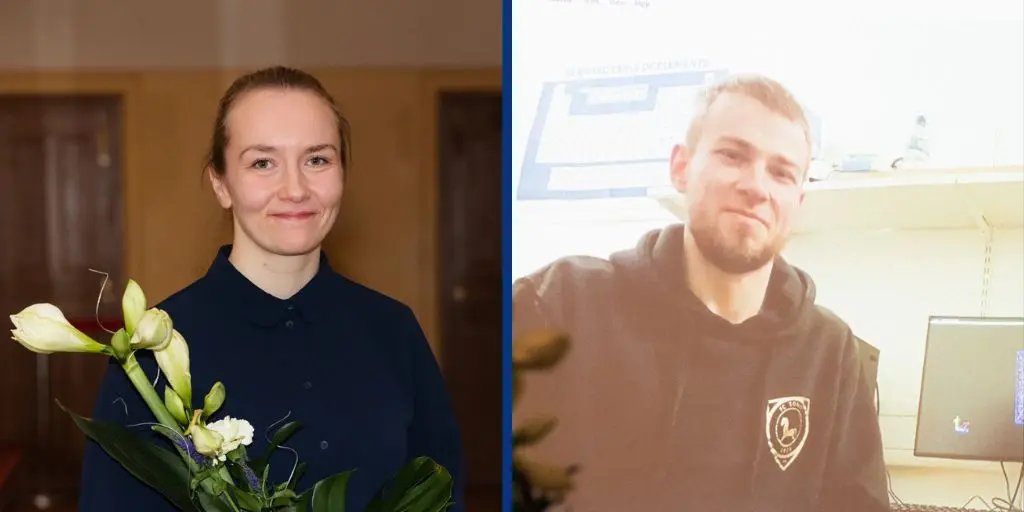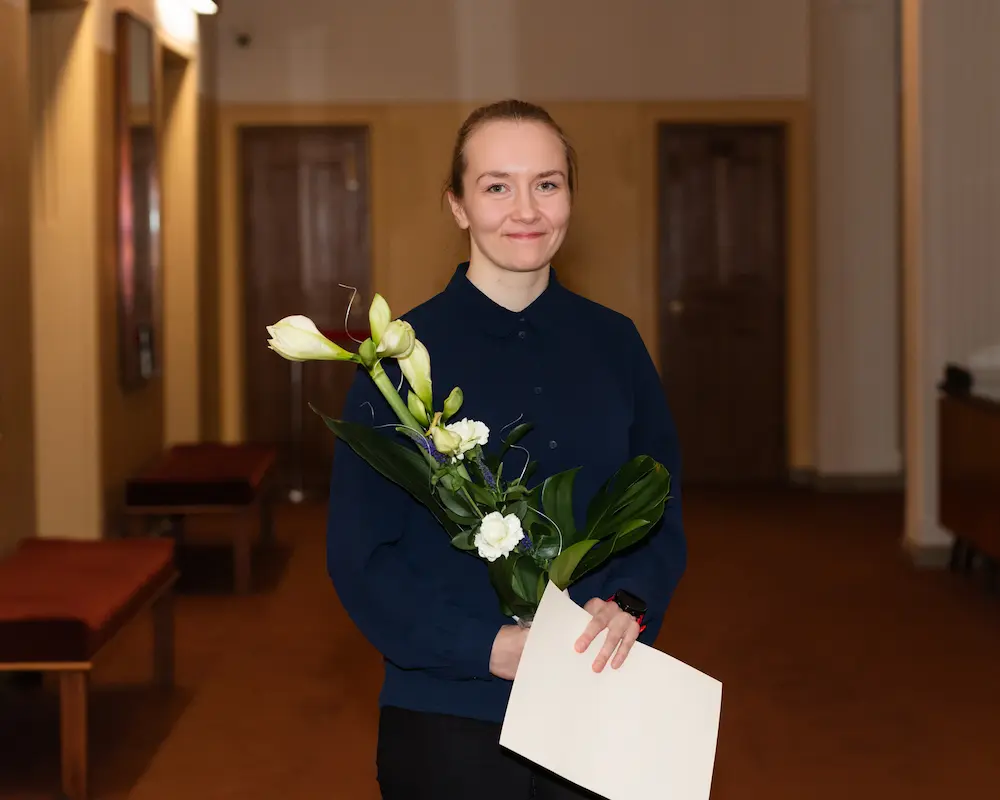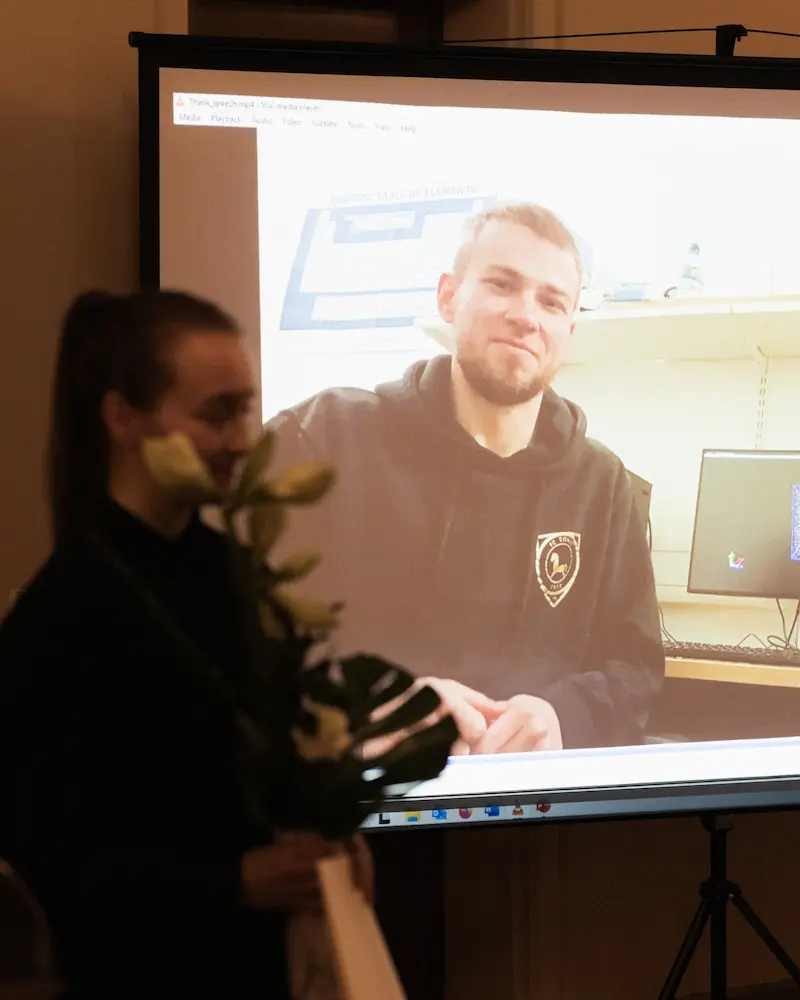The evaluation was based on the scientific merit of the doctoral theses, the breadth of the research and related methodological expertise, the focus of the narrative of scientific knowledge, the potential scientific impact of the works, the role of the researcher’s own work in the implementation of the work, and the visuality and readability of the doctoral theses.
The selection committee proposes that the Gust. Komppa Prize in 2025 be shared between Ph.D. Heta-Elisa Nieminen from the University of Helsinki, and Ph.D. Ilia Sokolovskii from the University of Jyväskylä.
Heta-Elisa Nieminen‘s doctoral dissertation “Reaction mechanism studies on atomic layer deposition processes” aims to experimentally investigate what kind of chemical reactions and how they can be controlled on the growth surface in the different stages of the atomic layer deposition (ALD) process. The first part of the dissertation describes in general terms the most common surface reactions that occur during ALD processes, when either metal or non-metal precursor pulses are used to grow atomic layers. The second part of the dissertation delves into various analysis methods that have been used in reaction mechanism studies of ALD processes. The dissertation contains six articles focusing on a total of eight mechanistic studies of different ALD processes. The studied processes range from metals (Co3Sn2, Ni3Sn2, Au, Pt and Ru) to insulating materials (AlF3, TiO2 and Al2O3).
The scientific contribution of the dissertation is especially the application of new measurement methods to the study of ALD processes. Combining a commercial ALD reactor with a high-vacuum analysis equipment enables the study of the thin film surface in a versatile way using different measurement techniques. Method development also includes the construction of an ALD reaction chamber and its gas supply at the SPECIES beamline at the MAX IV particle accelerator in Lund, Sweden.
The application of X-ray photoelectron spectroscopy (XPS) in thin film growth enables the role of surface reactions, their intermediates, and the deeper layers of the already grown film in the progression of surface reactions. The importance of finding the right reactions for the materials and material combinations of interest is further emphasized as the films of device structures approach thicknesses that can be achieved with only a few ALD cycles. A thorough knowledge of chemistry is a necessary and effective tool for the development of the entire ALD field.
Ilia Sokolevskii‘s doctoral dissertation “Multiscale molecular dynamics simulations of enhanced excitation energy transport in organic microcavities” focuses on development of multiscale molecular dynamics model, in which molecules and their chemical environment are modeled using a combination of quantum and molecular mechanics. The research challenge was specifically to understand why energy transport in organic solar cell materials is slower than in inorganic materials. Structural disorder affects the excitation carriers between adjacent molecular sites and thus the energy transfer in the material. A practical solution to this has been proposed to mix molecular excitations with confined light modes in optical cavities, whereby these two components hybridize into quasiparticles called polaritons, which have properties of both molecular excitations and cavity light modes.
The dissertation utilizes QM/MM simulations to present a general mechanism for cavity-enhanced transport. The research also shows how energy transport changes depending on the polariton dispersion and the cavity quality factor, i.e. how efficiently the resonant cavity stores energy compared to how much energy it loses over time.
Based on the studies, a practical means for efficient excitation energy transport via a photochemical reaction can be proposed. It is seen that the insights presented in this dissertation pave the way towards the rational design of molecular-cavity systems for coherent and efficient exciton transport.
Both dissertations represent a very high scientific level, and they consist of several research articles of high impact, representative of their own field. In addition, the selection committee was very pleased that the works reflect very deep methodological expertise, either in the development of experimental research methods or in the development of simulation methods in theoretical chemistry. As a result, the works have a direct connection to the development, production and analysis of the chemical targets under study. The topics of the research selected for the award particularly strengthen the view of the importance of basic chemical research as the basis for future applications.
The selection committee hereby unanimously proposes that the Gust. Komppa Prize 2025 be awarded to Doctor of Philosophy Heta-Elisa Nieminen and Doctor of Philosophy Ilia Sokolovskii.
Links to the original Doctoral Dissertations:
Heta-Elisa Nieminen‘s doctoral dissertation “Reaction mechanism studies on atomic layer deposition processes” http://hdl.handle.net/10138/571805
Ilia Sokolevskii‘s doctoral dissertation “Multiscale molecular dynamics simulations of enhanced excitation energy transport in organic microcavities” https://urn.fi/URN:ISBN:978-952-86-0379-5



